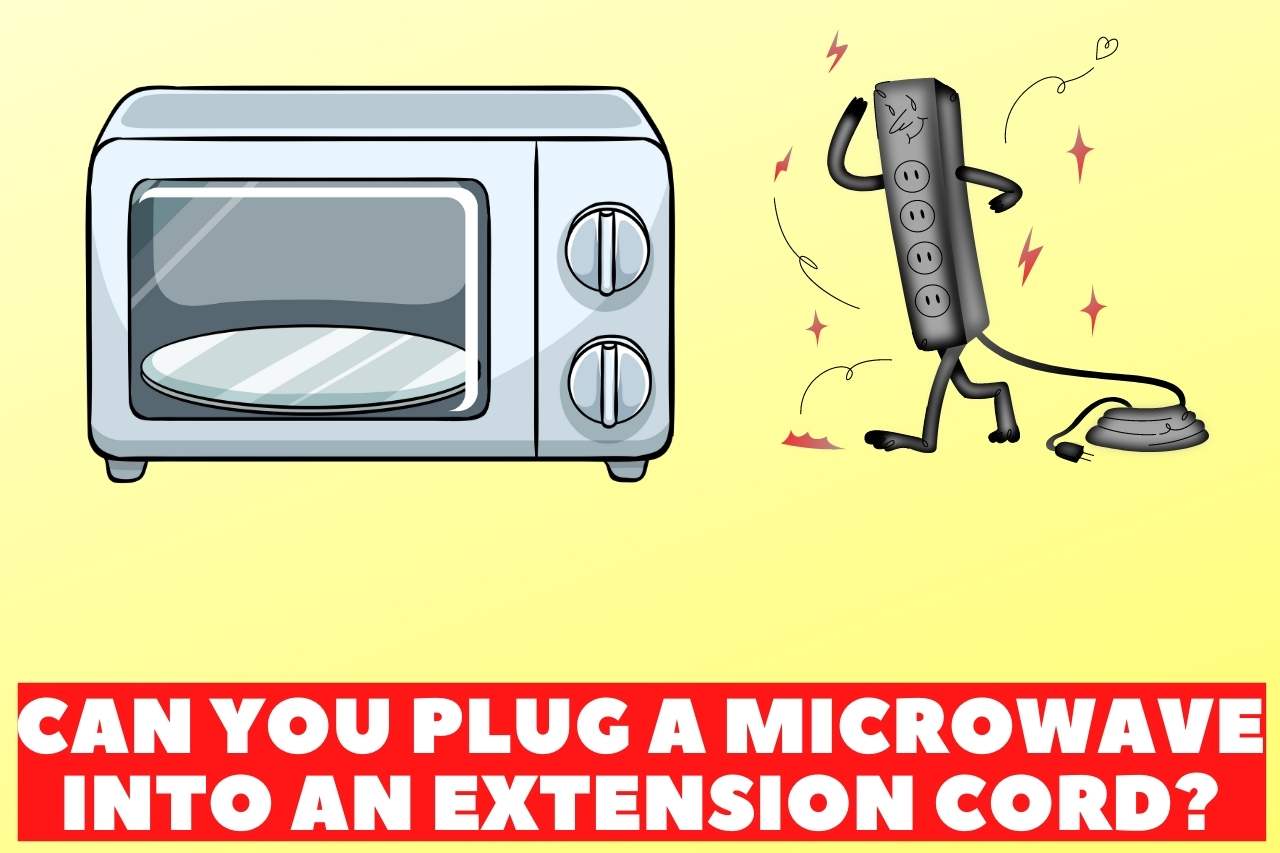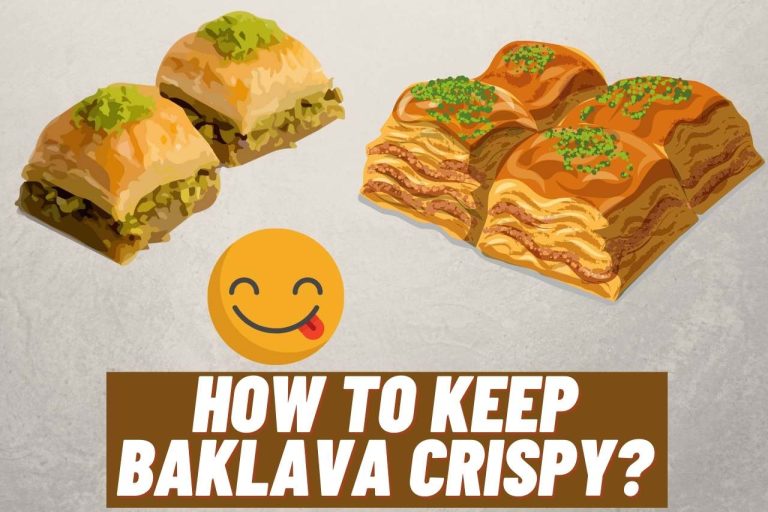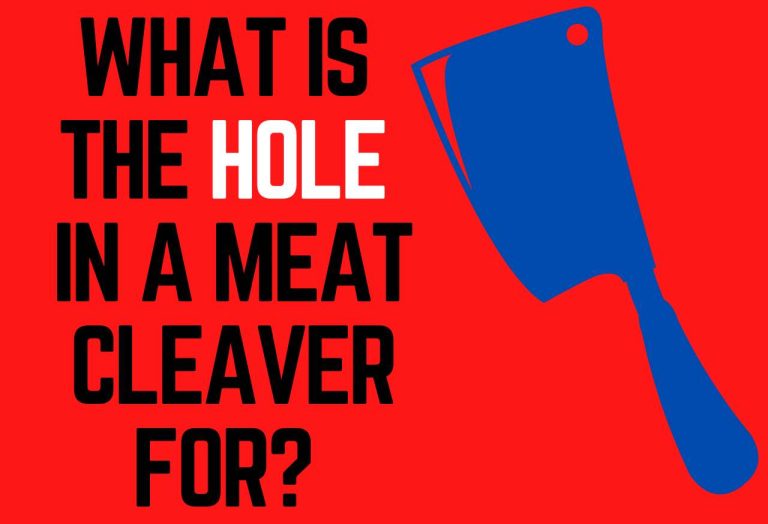Can You Plug a Microwave Into an Extension Cord? [Safety Guide]
The ability to quickly reheat leftovers from the day before or grab a fast snack when you’re in a hurry can be made possible by having a microwave in the kitchen. When utilizing a microwave, you will frequently look for an electrical outlet nearby. And in case of not nearby, you go for an extension cord. But you might be thinking about that can you plug a microwave into an extension cord? A microwave, though, is even a huge appliance? Is the use of an extension cable a fire risk? This article will help you in answering all these questions.
Can You Plug a Microwave Into an Extension Cord?
So, can you plug a microwave into an extension cord? Although a microwave may be plugged into a strong extension chord, doing so is not recommended since it could trip a circuit breaker or explode a fuse. If you use an extension cable, ensure it is connected and strong enough to handle the load.
A grounded wall socket is an optimum place for a microwave to get plugged in. Nevertheless, depending on the size and configuration of your kitchen, you might need to grab an extension cable because microwave cords are notoriously short. You must get the appropriate extension cord whether you have a 900-watt, 1100-watt, or any other microwave wattage. It must be grounded properly, have the required gauge and wattage, and be as brief as feasible.
Additionally, ensure the extension cable gets only plugged into the microwave; otherwise, overloading it may result in various problems, the worst of which is a fire.
What Happens When You Plug a Microwave Into an Extension Cord?
You risk endangering your health and damaging your microwave if safety precautions get not performed or if you plug it into a regular extension cable. Without the right circuit breaker, an overload might cause the insulation to melt, overheat the wire, and cause a fire to start. The load ratings now vary from circuit to circuit.
Some circuits, nevertheless, are built to handle greater electricity. We advise against adding the microwave connector to a circuit if too many items get hooked. If you hook a microwave to a regular extension cable, there may be electrical issues. Turn off the device when you detect a burning odor, buzzing sounds, or an overheated microwave. These are symptoms of loose connections or short circuits. A greater risk may arise if you utilize the gadget despite undetected warning flags.
Additionally, you will notice that the microwave oven takes longer to prepare meals when utilizing a standard extension cord, which is still another hassle for homeowners. Further, you could hear the vent fan whistling or see the microwave’s inside light flicker. You are less likely to have these issues if you utilize heavy-duty microwave extension cables. Any local hardware or home improvement store should have these extension cables.
Choosing the Right Extension Cord for Your Microwave
When choosing an extension cable for your microwave, there are several things to consider. They consist of the following:
-
Wattage
Making sure the wattage, an extension cable is required to deliver something it can do. Never use an extension cable that can’t handle an appliance with greater power because you risk starting a fire.
On the tag on the back of the microwave, look up the rated wattage. If you have removed the label for any reason, you can also locate it online in the user handbook.
-
Current Rating
It would be best to verify the extension cord’s current rating. You’d want one with 15 or 20 amps in a perfect world. It will be safer to plug the microwave into the extension cable if it has a greater current rating.
The gauge of your extension cable will also match the current rating; the smaller the gauge, the better the extension cord, as it can support more amps. This is the goal that you have in mind.
-
Plug Cord
An extension cable with three grounded prongs must get used to using a microwave. To avoid electrocution, use the third pin, often known as the grounding pin.
In the event of an incident, the pin will discharge all extra voltage into the earth. Without this pin, the microwave’s metal would conduct the electricity, shocking you if you touched it.
-
Cord Length
The ability of an extension cable to carry electricity decreases with length. You need to get a brief, thick extension cord that mimics your microwave’s cord to lower this resistance and prevent power dips.
What are the Safety Precautions of Using an Extension Cord?
Ensure the plugs are tight when connecting a microwave to an extension cable, that you have chosen the appropriate cord for the job, and that you aren’t overloading it. Make that it is still running correctly regularly.
Connect the microwave’s extension cord to the wall and the extension cord firmly and completely. Before proceeding, check to ensure your purchased extension cord has the appropriate current rating, wattage, and length. Check the extension cable occasionally to ensure the cords do not get frayed or bent.
What Type of Outlet Do you Need for Your Microwave?
A grounded outlet with the appropriate wattage gets required for a microwave. If not, the cord can become too hot, melt, or even catch fire.
You’re seeking a circuit with a dedicated 20 amps and 120/125 volts. Additionally, you must confirm that it is grounded and in flawless functioning condition.
Final Thought
For, can you plug a microwave into an extension cord? Yes! You may plug a microwave into an extension cable if you make the appropriate choice and follow all safety precautions. Whether you’re using an extension cable or not, there are several items you should never put in a microwave. To ensure it lasts a long time, keeps it clean frequently and according to the manufacturer’s directions.
Discover More: Related Articles You Can’t Miss







